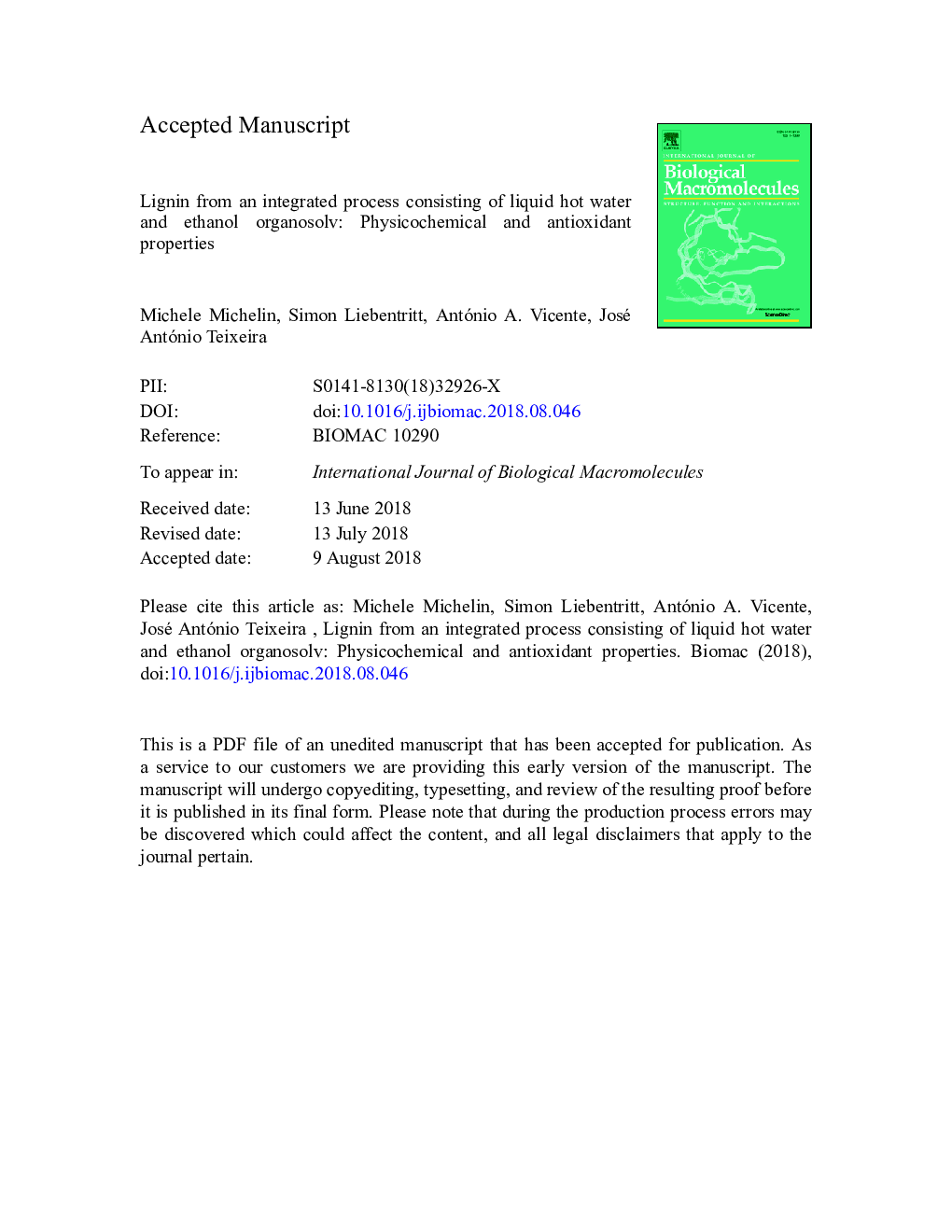| Article ID | Journal | Published Year | Pages | File Type |
|---|---|---|---|---|
| 8943754 | International Journal of Biological Macromolecules | 2018 | 51 Pages |
Abstract
Corncob was successively pretreated by liquid hot water (LHW) and ethanol organosolv (EO) in an integrated process. LHW was performed at 200â¯Â°C for 30â¯min, and EO was performed using uncatalyzed ethanol-water solutions, according to a design of experiments. The effects of the most influential operational variables (ethanol concentration, temperature and time) on yield and chemical composition of the fractions were assessed. Results showed the factor with the greatest effect was ethanol concentration (pâ¯<â¯0.05), leading to a high-purity lignin (86.7%-93.1%) with a total phenolic content of around 25â¯mg GAE/g. Moreover, the solids recovered from the high ethanol concentration conditions presented the lowest lignin contents (15.4%-17.2%) with good preservation of cellulose (82.5%-88.6% of glucans). The lignin antioxidant capacity showed that all lignin samples presented radical scavenging activity (IC50 of 0.17â¯mg/mL and 0.016â¯mg/mL on DPPH (2,2âdiphenylâ1âpicrylhydrazyl) and ABTS (2,2â²âazinoâbis(3âethylbenzothiazolineâ6âsulphonic acid) assays, respectively) with values close to the commercial antioxidant BHT. Moreover, the chemical (FTIR) and thermal (DSC and TGA) characterization showed lignins with similar properties that were compared with lignin from direct ethanol organosolv process. Results showed that the integrated process of LHW-EO was the most effective way to obtain lignin with high purity and antioxidant capacity.
Related Topics
Life Sciences
Biochemistry, Genetics and Molecular Biology
Biochemistry
Authors
Michele Michelin, Simon Liebentritt, António A. Vicente, José António Teixeira,
